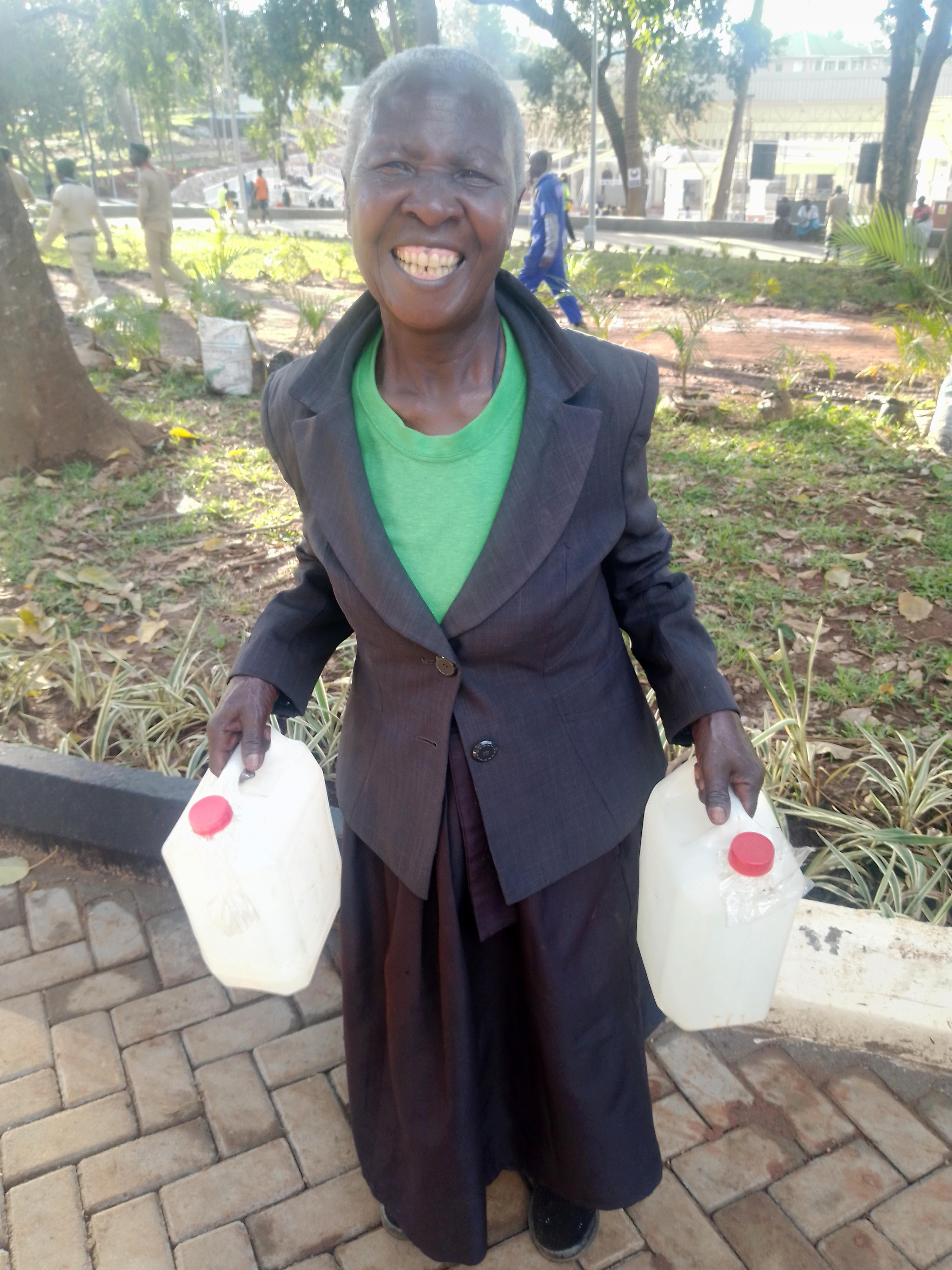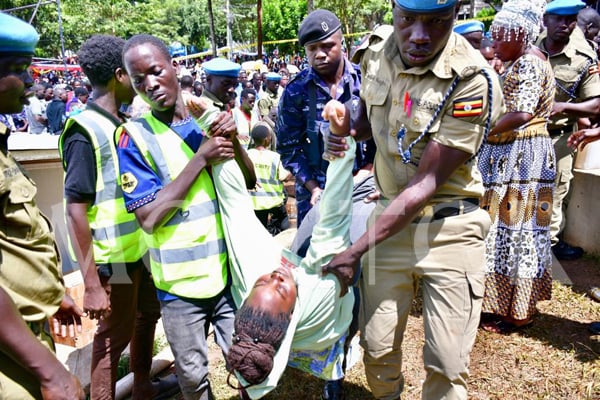Prime
Namugongo ‘holy water’ that heals

What you need to know:
- A study conducted by Makerere University Department of Biochemistry indicated that the ‘holy water’ contains pathogenic micro -organisms such as E. coli, and coliforms, a type of bacteria known to cause diarrhoea and urinary tract infections, respiratory illness and pneumonia, abdominal pain, and fever.
Pilgrims consider the water from the man-made lake at the Catholic shrine and the spring at the Anglican shrine at Namugongo in Wakiso District holy.
Every year during the commemoration of the Uganda Martyrs the faithful wait in long queues at the two shrines to fetch the treasured water, which they claim have healing powers.
The faithful say the water can cure all kinds of illnesses, adding that it also brings blessings to those who drink or sprinkle it.

Bottles and jerry cans filled with “holy water”. PHOTO/ MICHAEL KAKUMIRIZI
Others claim that sprinkling the water around their business premises and homes have improved their fortunes, lifted curses, brought happiness and peace.
Ms Sarah Namataka, an 80-year-old pilgrim from Mbale District, told Saturday Monitor that she would use the 10 litres of water she had fetched from the spring at the Anglican shrine to treat ailments that she said had bothered her for a long time.
Mr Clovis Kyomusiime from Ruhinda Parish, Ruhinda Sub-county in Rukungiri District, who trekked to Namugongo in a group of 42, said: “This water is very holy. It can cure all diseases, especially the demons. You can use it in your business to get customers. You just sprinkle it around the business, and you are able to attract customers.”
Ms Joyce Awekonamungu, a pilgrim from Pakwach Parish, Nebbi District, said the water would give blessings to her family. She said the power of the ‘holy water’ can be accessed through mixing it in bath water or drinking it.
However, health officials and the clergy have cautioned the faithful against drinking the water before it is boiled or purified.
A study conducted by Makerere University Department of Biochemistry indicated that the ‘holy water’ contains pathogenic micro -organisms such as E. coli, and coliforms, a type of bacteria known to cause diarrhoea and urinary tract infections, respiratory illness and pneumonia, abdominal pain, and fever.
Mr Elioda Lutaaya, a pilgrim from Ibanda District, said the water improves yields when sprinkled on crops.
Mr Fred Oundo, the officer-in-charge of education at the Uganda Martyrs Seminary, Namugongo, said it is believed that whenever Mukajanga, Kabaka Mwanga’s chief executioner, and his team would kill people, they would wash their blood-stained weapons in the spring where the Anglican shrine is located.
The Anglican Church has installed taps at the spring to ease fetching of water. The spring is thronged by Christians from both the Anglican and Catholic denominations.
The pilgrims believe the water was rendered holy because it came into contact with the blood of the martyrs.
“Basing on the faith that the martyrs had, when someone comes with a problem to this place, being a holy land, they are also cleansed of their sins and evil spirits and more so, get blessings,” Mr Oundo said.
At the Catholic shrine taps were installed to enable the faithful safely fetch water from the man-made lake.
The lake reportedly started as a pond created in a swampy area by Msgr Lawrence Mbwenga. One of the martyrs, Charles Lwanga, was reportedly killed at the site. The pond was later expanded into a lake.
Rev Jackson Bwambale, an Anglican priest and a community liaisons officer at Kira Police Station, said the water works for those who have faith.
“As a priest, I believe it is your faith that makes you well, not the water that is here. The faith that you have is what makes you well,” Rev Bwambale said.




